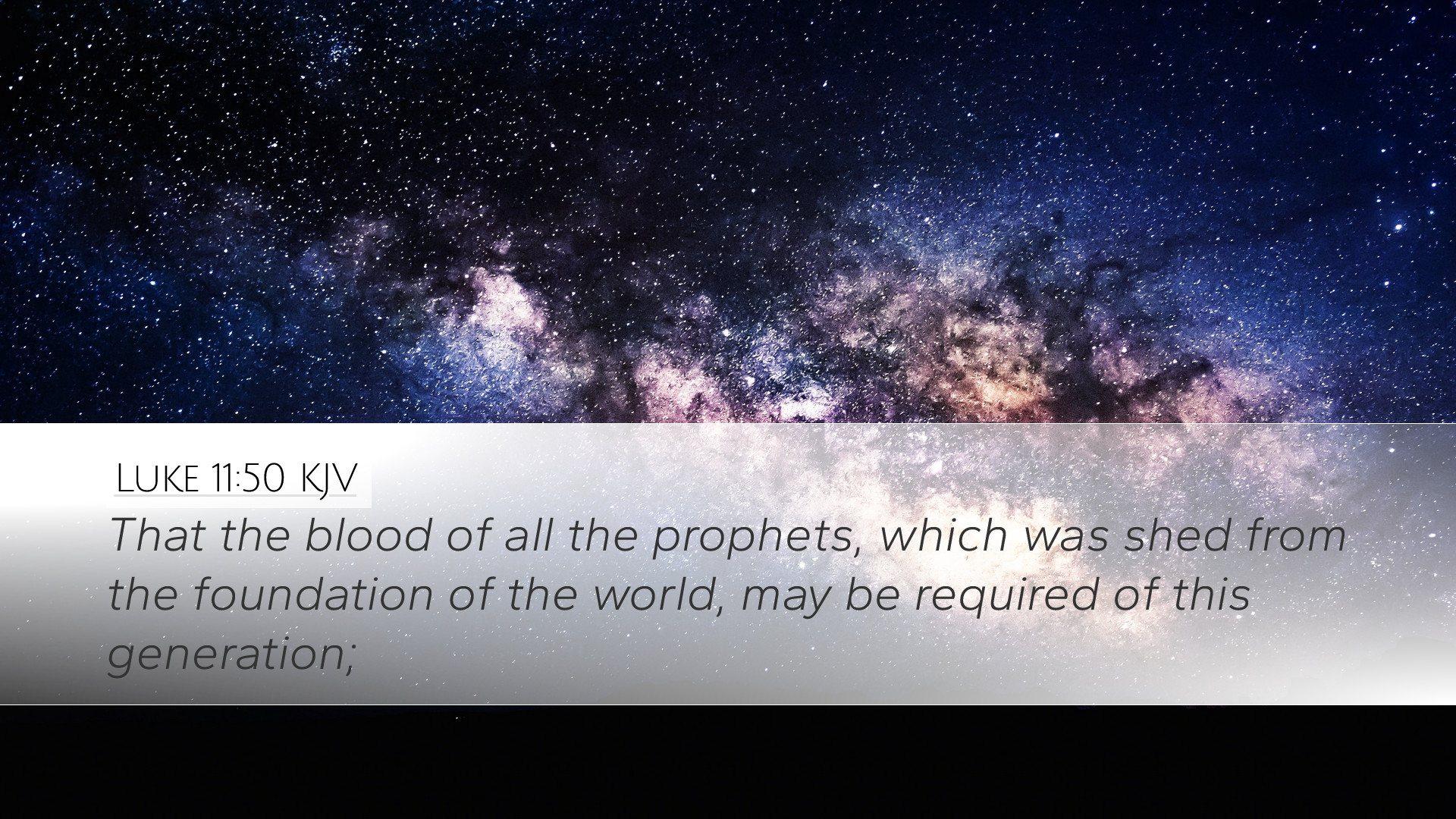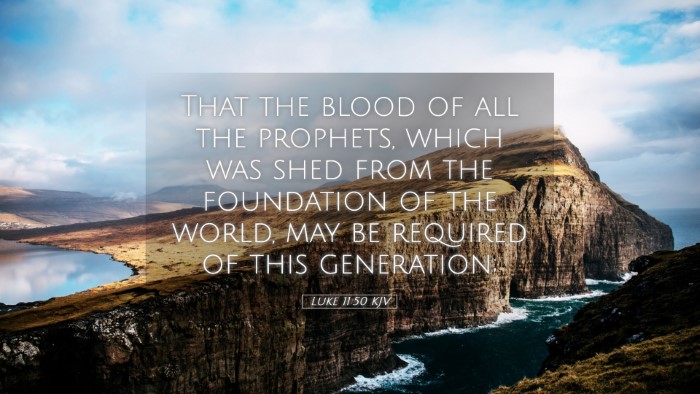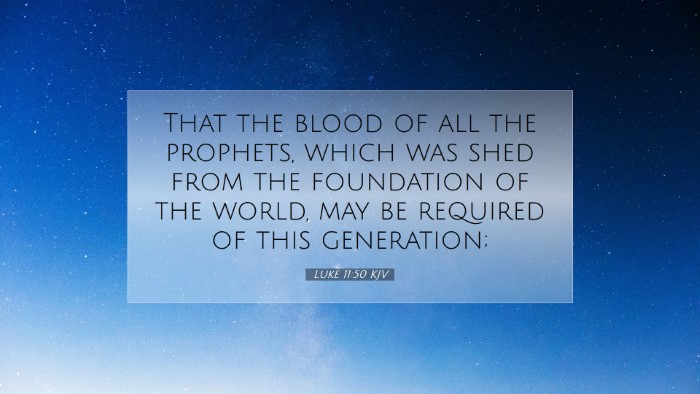Commentary on Luke 11:50
Luke 11:50 states: "That the blood of all the prophets, which was shed from the foundation of the world, may be required of this generation." This verse carries profound implications regarding accountability, the continuity of God's message throughout history, and the prophetic tradition in relation to the coming of Christ. Here we explore insights from notable public domain commentaries.
Contextual Background
The context of this verse is Jesus' lamentation over Jerusalem and His condemnation of the religious leaders of the time. It follows an exchange where Jesus rebukes the Pharisees for their hypocrisy and highlights their role in rejecting and persecuting God's messengers. The weighty nature of the verse lies in its recognition of the cumulative guilt of generations who have failed to heed divine admonition.
Insights from Matthew Henry
Matthew Henry emphasizes that this statement by Jesus encapsulates God’s long-suffering with His people. He notes:
- Historical Accountability: Henry interprets this verse as a declaration that the blood of prophets sheds light on the inevitable accountability for every act of rejection against God’s messengers. He observes that “from the foundation of the world” signifies that this isn't a new issue, highlighting the historical repeated failure of Israel to embrace the prophetic calls for repentance.
- Divine Justice: The commentary reflects on God’s justice, affirming that each generation must reckon with its sins. Jesus’ generation is particularly culpable as they confront the culmination of centuries of prophetic teaching in Him.
Insights from Albert Barnes
Albert Barnes provides a more detailed theological interpretation surrounding the implications of prophecy and its reception. He asserts:
- Rejection of Prophets: Barnes elucidates that God's prophets often faced persecution, and the collective blood represents an indelible mark on the conscience of Israel. Jesus' statement points not only to their physical persecution but also to the spiritual neglect of their messages.
- Future Judgment: He suggests that there is a future reckoning implied here. The line from past prophets to present accountability underscores a theological premise that each generation is responsible for both the legacy they inherit and the choices they make regarding faithfulness to God’s message.
Insights from Adam Clarke
Adam Clarke’s commentary takes on a pastoral and insightful approach. He remarks:
- The Cost of Disobedience: Clarke discusses the tragic cost of disobedience that works through history. He notes that the phrase “required of this generation” intends to communicate that those who reject the truth will eventually have to face the consequences of their actions, both individually and collectively.
- Link to the Cross: Clarke links this prophetic acknowledgment to the anticipation of the cross, suggesting that all the bloodshed stands in stark contrast to the innocent blood that Jesus will shed. Thus, it underscores the ultimate fulfillment of sacrifice required to redeem the countless rejections of prophetic calls throughout history.
Thematic Considerations
When examining Luke 11:50, several important themes arise:
- The Prophetic Tradition: The reference to the blood of prophets signals the importance of the prophetic voice in God's plan. It showcases the continuity of God’s message and the seriousness with which God views rebellion against His truth.
- Generational Responsibility: Each generation inherits the responsibility to respond correctly to God’s revelations, highlighting a biblical principle of corporate accountability. This concept challenges modern readers to consider how they heed God’s word today and how future generations may be impacted by their spiritual choices.
- Mourning for Jerusalem: This verse reflects Jesus’ deep lament for Jerusalem, framing it within a broader narrative of sorrow for those who refuse to listen to God. It invokes both pity and a strong call for repentance.
Conclusion
In summary, Luke 11:50 is a stark reminder of the prophetic tradition and the grave responsibilities that accompany the gift of revelation. The insights from Matthew Henry, Albert Barnes, and Adam Clarke underscore the weightiness of this verse as it relates to historical accountability, future judgment, and the essence of God’s call to the people. Pastors, students, theologians, and scholars are thus encouraged to reflect deeply on their engagement with God’s word and the weight of the calling that comes with it.


